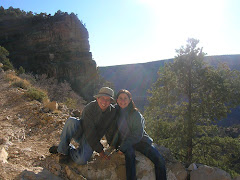Baha'i faith celebrates 'oneness' of religions
Milwaukie woman is a national leader in the Baha'i faith

World Religion Day is coming up this Sunday and if you have ever wondered what that is all about, Erica Toussaint can tell you.
The Milwaukie resident, a member of the Baha'i Faith, said the Baha'is began World Religion Day in 1950 as one of the observance days to “heighten public awareness of the concept of one common faith,” a major component of the Baha'i Faith.
On Jan. 18, Toussaint will meet with her local Baha'i Faith group, and on that day their prayers will focus on “the oneness of religion with God.”
There are 600 Baha'i Faith members in the greater Portland area, she said, divided into 22 communities; Toussaint belongs to the NW Clackamas County Baha'i community, with about 25 members.
The Baha'i Faith takes its name from its founder, Baha’u’llah, an 18th century prophet born in Iran, Toussaint said.
Baha’u’llah “means glory of God in Arabic,” she added.
The basic tenets of the Baha'i Faith are a belief in “the equality of women and men and the essential oneness of all the world’s religions. Baha’u’llah believed that all [religious] founders, all messengers, were all great teachers, including Abraham, Moses, Krishna, Buddha, Zoroaster, Jesus and Muhammad. [They were] all inspired by the same God to educate humanity to bring together the unity of mankind,” Toussaint said.
There are a few things that distinguish the Baha'i Faith from other religions, she said, the first being that there are no clergy, and there are few established churches.
“Everyone is responsible for his or her own service — this is an independent investment of faith, we have no congregational mentality,” she said, noting that Baha'is pray together in “devotional meetings that are neighborhood based,” usually in other members’ homes.
Fast growing religion
There are about 160,000 Baha'i Faith members in the United States, and that number is growing so quickly that the National Spiritual Assembly “took a step back to systematically figure out how to welcome new believers. We then embarked on a 25-year-devlopment program world-wide.”
That led to the training process that is currently underway to form children’s classes and classes for junior youth, ages 12 to 14.
Baha'i roots
Toussaint said her Baha'i roots go back to 1912, when her grandfather, then a Unitarian minister, heard the son of Baha’u’llah speak about the Baha'i Faith.
“He became a Baha'i and had one child, my grandmother, who became a Baha'i, and then my mother, who became a Baha'i. My mother made sure I had every opportunity to study every religion, so when I turned 15, I formally became a Baha'i,” she said.
Toussaint attended Milwaukie schools, and noted that she was the only Baha'i in high school, and “took pride in being different.”
She did not think when she was a teen that there would be so many of the Baha'i Faith in the area, she said.
Toussaint added, “I think people are looking for unity. I am a Baha'i, because these teachings are deeply spiritual, clearly moral and make so much sense. It is a practical way for all mankind to truly live as brother and sister. I practice these teachings in order to experience the commonality and richness of the human family.”
Baha'i Faith members elect nine-member councils locally, regionally and nationally to guide followers, Toussaint said, and communities meet once a month to “pray, consult and hear from the local council.”
She noted that founder Baha’u’llah used the number nine, the highest single digit, “symbolically, as a sign of unity.”
Toussaint is beginning her ninth year on the nine-member National Spiritual Assembly, to which she was elected in 2000.
“We all knew a long-serving member was retiring, but when my name was called I was overwhelmed. The Baha'is have a great deal of respect [for the National Spiritual Assembly board] because they govern with love and vision."
For more information about the Baha'i Faith visit the Website at www.bahai.us.





No comments:
Post a Comment